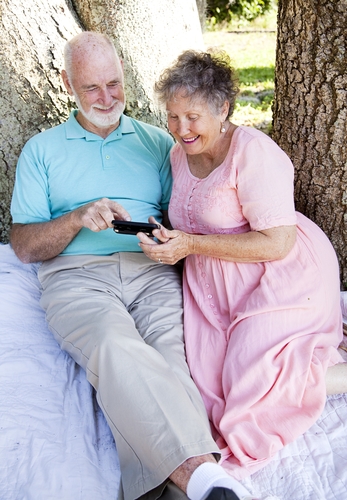Smartphones and senior healthcare

In the age of technology, it may seem like everyone and their mother owns a smartphone. Americans do everything on their phones – from depositing checks to watching shows and reading the news. Now however, smartphones may soon be the focus of senior health insurance.
According to a Pew Research study, only 13 percent of seniors were smartphone users in 2012. Across all demographics, 46 percent of adults had smartphones, the majority between the ages of 18 and 35. While fewer seniors have smartphones, the number is growing. In 2011, only 11 percent of seniors had smartphones. While this change is small, phones will continue to become more affordable and widely available and more seniors are expected to get on board.
Healthcare adoption
With thousands of applications out there for smartphones, none are more useful than those that are health-related. While no app can replace doctor services, there are a few ways to monitor daily health from home. For example, there are apps that can monitor your heart rate and can be hooked up to a device to measure blood pressure. By being able to conduct routine medical tests and monitoring at home, seniors can keep track of any conditions independently. In the long run, this could save money by reducing visits for small services. A senior might also be able to keep medical records at their fingertips by using a smartphone. As technology continues to progress, the use of smartphones in senior healthcare may advance and become a part of everyday life.
Seniors in mind
There are many apps that have been created just for seniors who suffer from ailments like weak eyesight or arthritis. These apps can increase the size of touch-screen buttons or the font. There are also voice-activated commands available so seniors don’t need to strain to listen to a voicemail or check email. For seniors with arthritis, voice command apps that allow you to text, send or receive calls can offer great relief for stiff fingers.
There are also apps to help read menus in restaurants, to store information and aid with memory care, to find public bathrooms in close proximity, as well as a heart rate tracker that can help seniors while exercising. With all of these apps, seniors with smartphones can make retirement living easier. Games and brain teasers may also be beneficial in restoring memory in seniors and can help them stay sharp.

